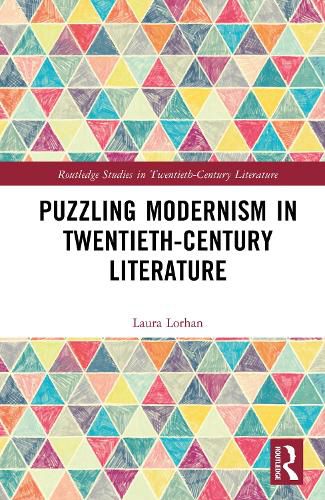Readings Newsletter
Become a Readings Member to make your shopping experience even easier.
Sign in or sign up for free!
You’re not far away from qualifying for FREE standard shipping within Australia
You’ve qualified for FREE standard shipping within Australia
The cart is loading…






Puzzling Modernism in Twentieth-Century Literature identifies a sustained interest in puzzles, such as the jigsaw and Fifteen Puzzle, dating back to the 1880s in the United States, and argues that puzzles appealed to modernist authors because they offer a framework for acknowledging the grim realities of modern life without sacrificing the possibility for reconnection and regaining a sense of wholeness. However, puzzles also participate in exclusionary discourses and advance regressive agendas, particularly when administered as intelligence tests. Far more than aesthetic models, then, puzzles serve modernist writers as tools for revealing and frequently subverting the rhetorical ends to which these seemingly innocent and trivial pastimes have been put. This volume examines how Ezra Pound, T. S. Eliot, Dorothy Parker, Djuna Barnes, Jean Toomer, and Carson McCullers intervened in cultural debates about race, gender, sexuality, and belonging via their selection of specific puzzles as aesthetic influences and touchstones for interrogating received ideas. Geared toward specialists in twentieth-century Anglo-American literature, this book is, nonetheless, accessible to undergraduates and other educated readerships. Blending close reading with cultural history, Puzzling Modernism in Twentieth-Century Literature offers a nuanced view of American literary history from a time, not unlike our own, in which nativism, intolerance, and fear were endemic.
$9.00 standard shipping within Australia
FREE standard shipping within Australia for orders over $100.00
Express & International shipping calculated at checkout
Puzzling Modernism in Twentieth-Century Literature identifies a sustained interest in puzzles, such as the jigsaw and Fifteen Puzzle, dating back to the 1880s in the United States, and argues that puzzles appealed to modernist authors because they offer a framework for acknowledging the grim realities of modern life without sacrificing the possibility for reconnection and regaining a sense of wholeness. However, puzzles also participate in exclusionary discourses and advance regressive agendas, particularly when administered as intelligence tests. Far more than aesthetic models, then, puzzles serve modernist writers as tools for revealing and frequently subverting the rhetorical ends to which these seemingly innocent and trivial pastimes have been put. This volume examines how Ezra Pound, T. S. Eliot, Dorothy Parker, Djuna Barnes, Jean Toomer, and Carson McCullers intervened in cultural debates about race, gender, sexuality, and belonging via their selection of specific puzzles as aesthetic influences and touchstones for interrogating received ideas. Geared toward specialists in twentieth-century Anglo-American literature, this book is, nonetheless, accessible to undergraduates and other educated readerships. Blending close reading with cultural history, Puzzling Modernism in Twentieth-Century Literature offers a nuanced view of American literary history from a time, not unlike our own, in which nativism, intolerance, and fear were endemic.